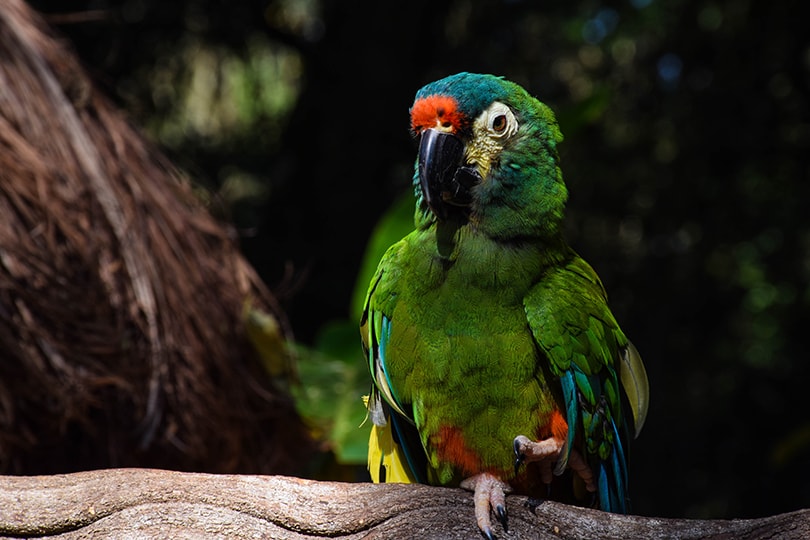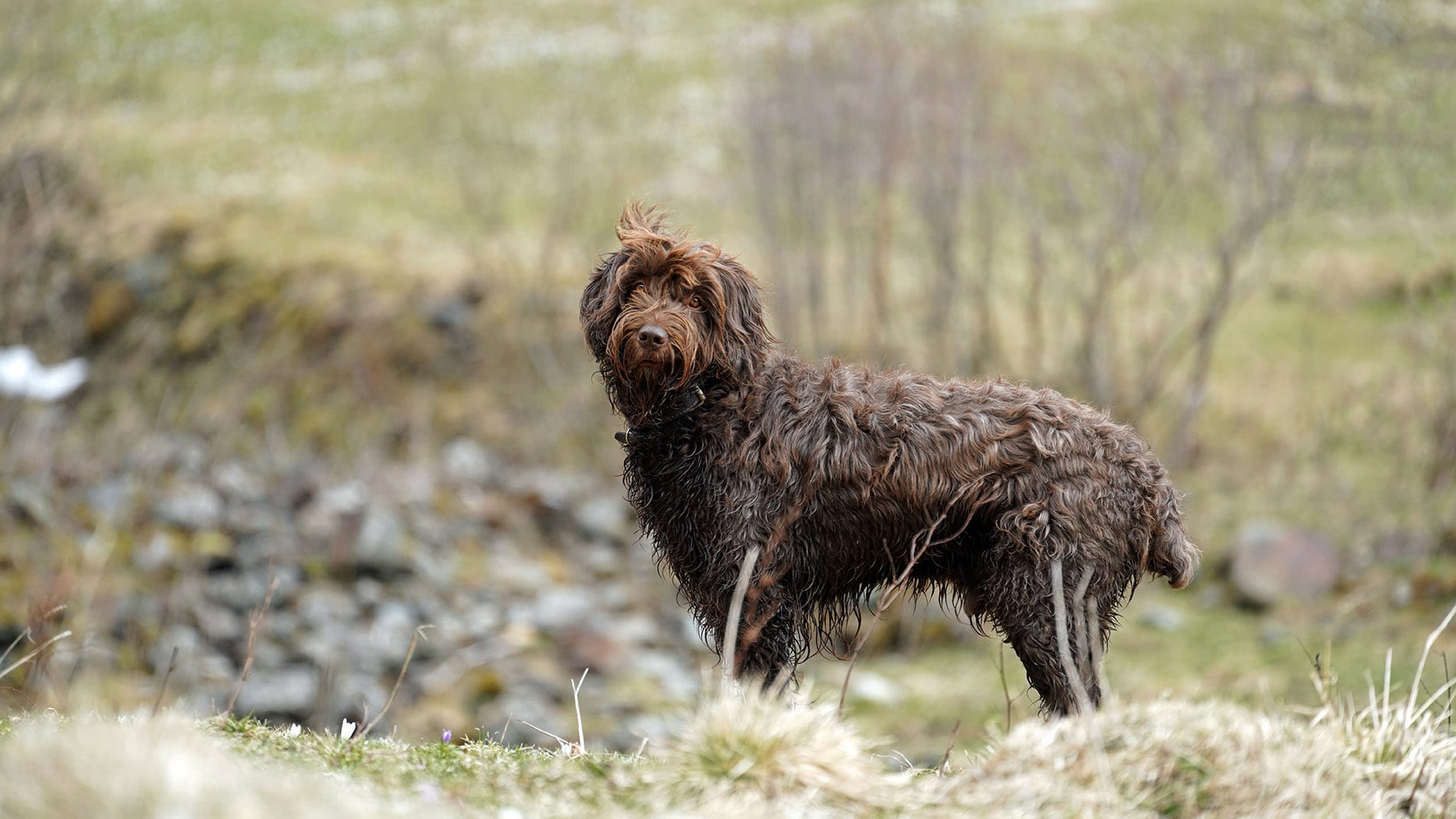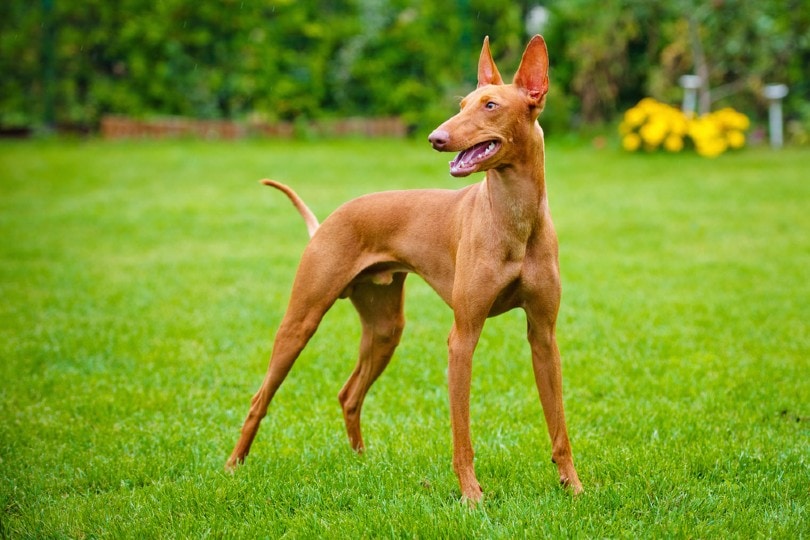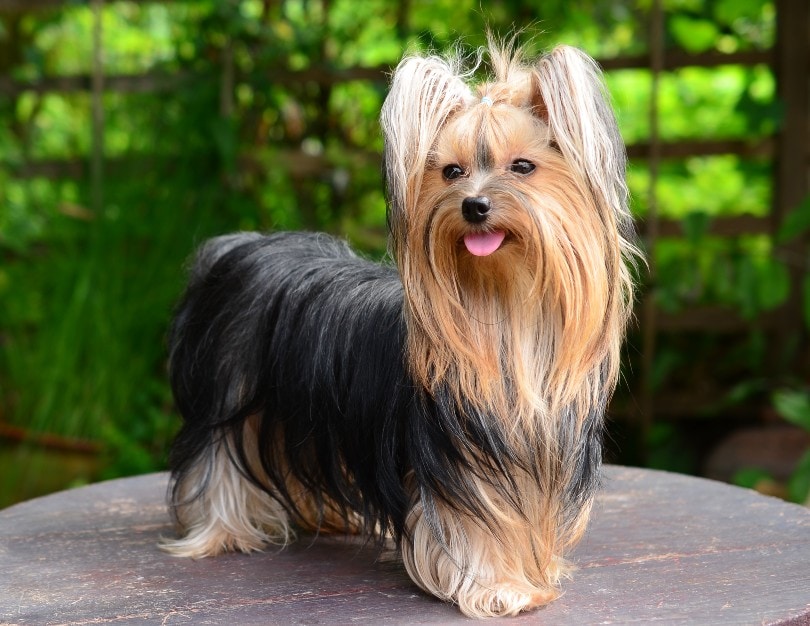Click to Skip Ahead
Mini macaws are smaller variants of the macaw parrot. Several species fall under the title of mini macaw, and they are considered good pets because they are friendly, fun, and exciting little birds that tolerate and welcome being handled.
However, they require some work on the owner’s part to ensure they remain happy and friendly. They may be smaller than their fully-fledged macaw counterparts, but they still have many of the same physical and mental requirements, and they certainly aren’t birds that can be left in the corner and forgotten about.
Read on to learn what it entails to keep a mini macaw as a pet and to see whether this bird is the right choice for you.

The 3 Popular Mini Macaw Breeds
Macaws that measure under 18 inches when fully grown are generally considered mini macaws. Although they all fall under the same banner of mini macaw, there are discernable differences between the species. The most popular include the following.
1. Hahn’s Macaws
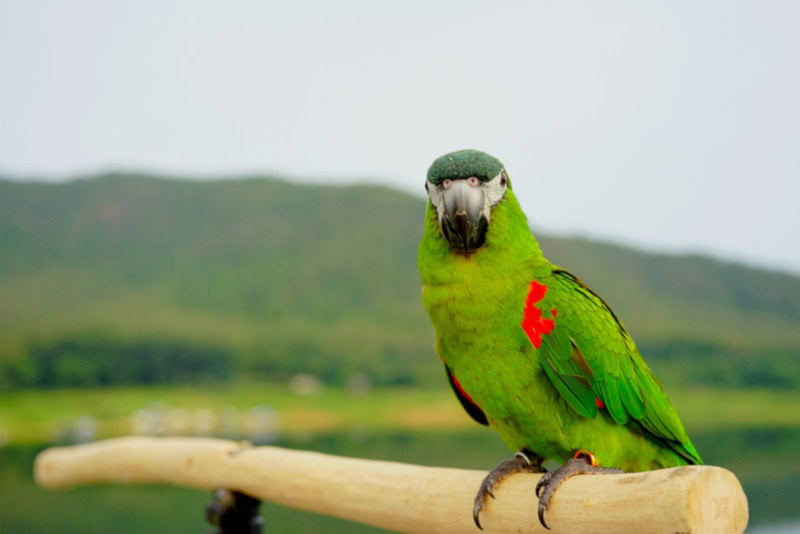
These little parrots measure 12 inches, but what they lack in size, they make up for in other ways. They are bright, friendly little birds that can talk and are easy to care for. This combination has made the Hahn’s macaw one of the most popular companion bird species.
2. Illiger’s Macaws
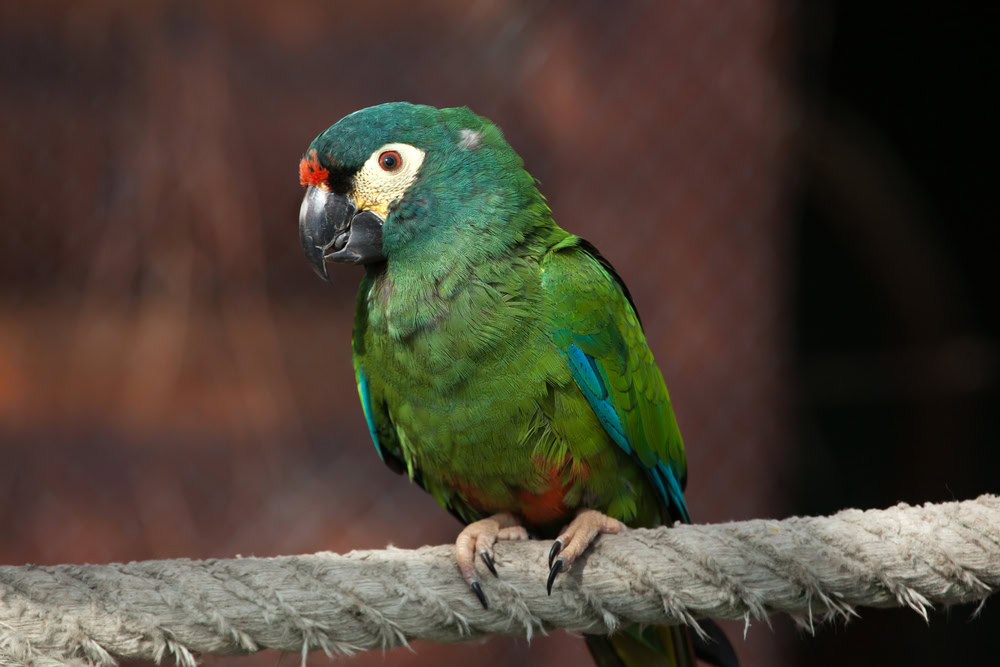
Measuring 16 inches, the Illiger’s macaw is friendly and playful. They can be trained and develop strong bonds with family members. However, they require effort on your part as they need regular handling and attention to remain happy.
3. Severe Macaws
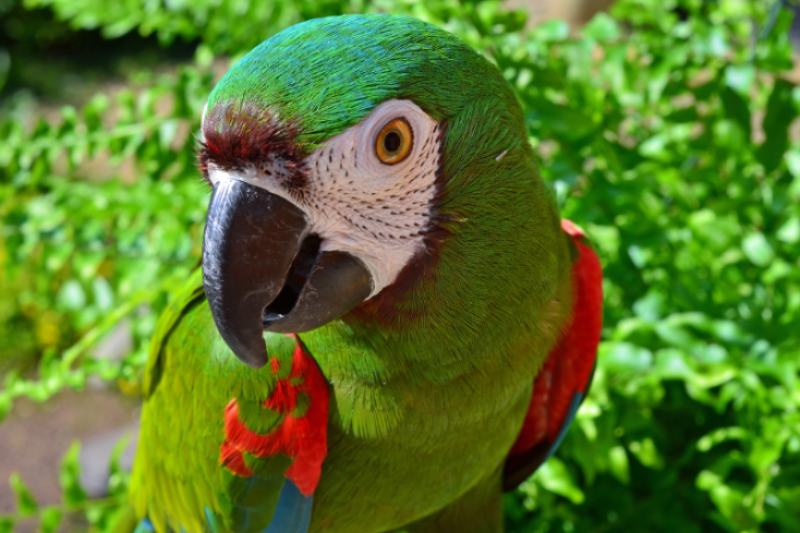
The severe macaw is another popular breed. This one measures 18 inches when fully grown, making it the largest of the mini macaw breeds. The severe macaw is another species that responds well to training but requires ongoing stimulation.
About the Mini Macaw
The mini macaw is a small to medium-sized bird, typically measuring up to 18 inches. Although they are smaller than standard macaws, they share many other traits. They’re native to Panama, Brazil, and Bolivia. They live for around 20 years, and despite their diminutive size, they need plenty of space to move around.
Their playful and inquisitive nature makes them more demanding of your attention.
How Much Are Mini Macaws?
Besides being physically smaller, the mini macaw has a smaller price tag than the full-sized birds. However, you will still need to pay around $800 to $1,000 for one, and you will need to part with more than that for a rare hybrid.
- Related Read: How Much Does a Macaw Cost? (Price Guide)
What Do You Need?
Your time is one of the most important things you can provide a mini macaw. They need several hours per day outside the cage, often as long as 4 hours. This will ensure that they remain healthy and do not suffer from depression or develop anxiety. You will also need to provide the following.
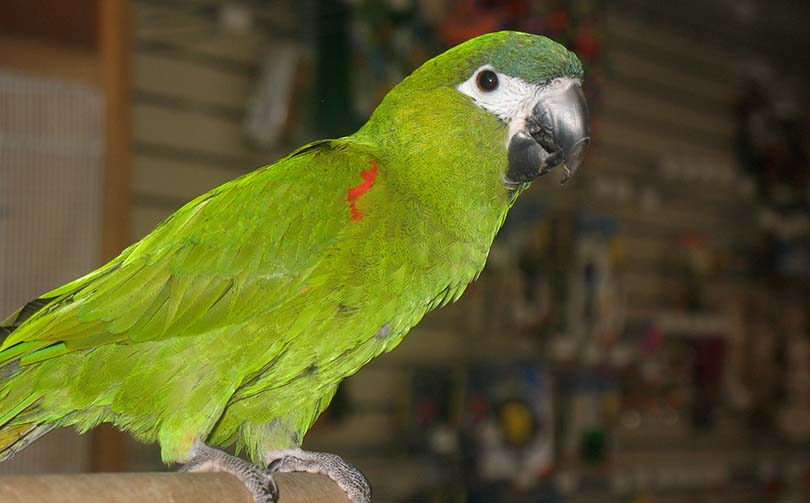
- Related Read: How to Take Care of Baby Macaws
Cage and Contents
Buy a cage at least 36” x 24” x 36”. This will provide the largest of the mini macaws, the severe macaw, with enough room to hop about and stretch out. The cage bars should be spaced no more than 24 mm apart, ideally 20 mm apart. This will help prevent your bird from escaping from the cage and stop them from getting stuck.
Mini macaws need several wood perches of various textures and shapes. They will need replacing often, as your bird will chew the wood. Food and water bowls made of stainless steel will last the longest, and your macaw will not ingest any BPA or plastics. Possible substrates include sawdust, corn husk, newspaper, and a hardwood floor. You can also offer foraging and other interactive toys. They will keep your bird entertained and provide physical and mental stimulation.
Food
You can feed them nuts in moderation and offer seeds, and you can also feed them commercial macaw or parrot food with occasional vegetables and fruit as treats. Most nuts are high in calories, so they should not be served too often. Feed them as treats instead. You also need to ensure that your mini macaw has ongoing access to a fresh water supply.
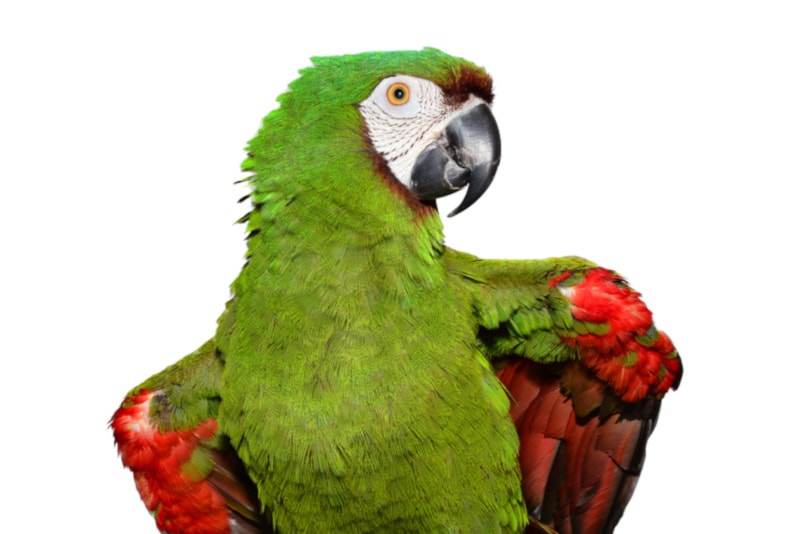
 Are They Cuddly?
Are They Cuddly?
Mini macaws are affectionate pets, but unlike other birds, they will not cuddle or nuzzle up to people until a bond has developed. Spending a couple of hours each day with your macaw is best. Start by talking to them through the cage for the first few days while they become acclimatized to their new surroundings. Once they are comfortable with your voice, open the cage and encourage them out while starting to teach them to hop onto your finger. Always talk in a reassuring manner and ensure that there are no dangers nearby. Eventually, your mini macaw may choose to cuddle with you.
Some mini macaws form a strong bond with a single person, while others make good family pets because they bond with all their human family members. Ensure you choose a species that best fits your familial setup, and determine who will spend time with the parrot.
- Read Also: 8 Signs That Your Macaw Likes You
Can Mini Macaws Talk?
How well a macaw talks depends on various factors. Some have screechy speech with few recognizable sounds, but other species of mini macaw make very good talkers. The Hahn’s macaw, for example, is the most popular miniature species. One of the reasons for their popularity is that they are intelligent and have a good voice. They can learn several words and phrases over time.

Training a Mini Macaw
Since they’re intelligent and enjoy spending time with humans, mini macaws are good birds to train. Keep sessions short, use props like perches, and ensure that your bird and you are concentrating solely on the training. Use nuts or other treats, and combine them with a loving scratch when your bird acts and reacts how you want them to. Keep commands simple; over time, your mini macaw will learn how to behave.
- If you are training to stop your bird screeching, start by ignoring this unwanted behavior. Otherwise, your bird will scream whenever they want your attention.
- If your bird tends to nip or bite, hold your hand up to stop them. Don’t shout or try shooing them away.
- Macaws, including the mini variants, do not usually need training to teach them to step up. Your little parrot will likely take to this quickly without specific lessons.
Handling a Mini Macaw
Handling is an integral part of macaw ownership. It improves and strengthens the bond between you and your bird, and it can prevent your macaw from becoming depressed or stressed. It also makes it easier for you to check for physical injuries and signs of illness while handling them. Getting a new macaw used to being handled is not an overnight or instant task, though these friendly birds usually take well to being handled.
- Give a new macaw some time to acclimatize to their new surroundings.
- Once the bird gets used to their surroundings, spend time in the same room as them. This will allow the parrot to get used to your voice.
- Tasty treats are ideal for endearing yourself to your bird. Offer a slice of apple or another treat now and then, but avoid overfeeding the bird.
- Once the bird is used to taking treats from your fingers, you can place a treat in the palm of your hand and encourage the bird to step up onto your palm to take the snack.
Are Macaws Aggressive?
Mini macaws are rarely aggressive, but it is possible. You are more likely to have an aggressive bird if you have adopted them and they were mishandled or never handled by their previous owner. It is still possible to teach such a macaw that you are not a threat, but it can take a long time. Approach this in the same way you would when first handling any bird, but be prepared for the process to take several weeks.
 Mini Macaws as Pets
Mini Macaws as Pets
Mini macaws are generally friendly and loyal little companion birds. They can be trained, are rarely aggressive, and learn to imitate words and sounds. Handle them regularly, provide them with plenty of stimulation, and enjoy the big personalities of these little birds.
- Read Also: Top Macaw Names
Featured Image Credit: VCoscaron, Shutterstock
